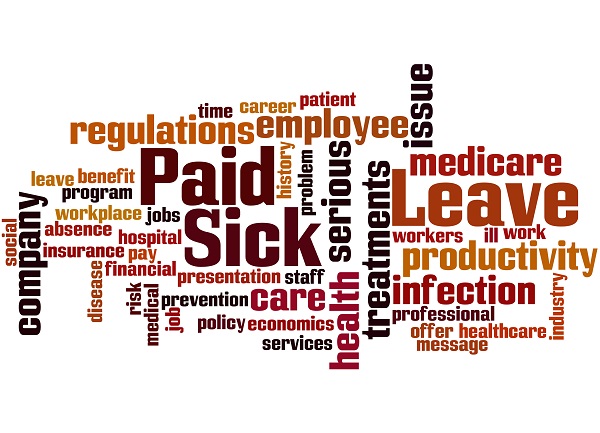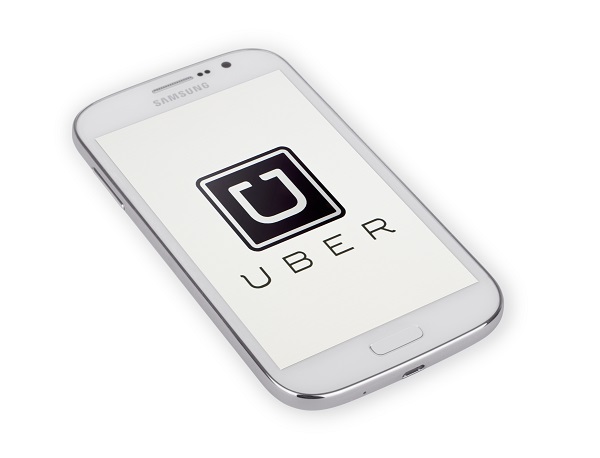The Sprouts Case: Employers And Phishing Scam Awareness
By DeAnn Chase December 27, 2016 Category: Business Law

In 2016, employers face many risks and challenges in keeping employee information private and secure. As business owners are a particularly lucrative target, dealing with phishing attacks and maintaining absolute privacy are current daily challenges faced by employers. Employers must be constantly vigilant and aware of this type of fraud, especially since scammers and hackers use email, text messages, phone calls, and social media to steal data. In April of this year, former employees of Sprouts initiated a class action lawsuit in the United States District Court, Southern District of California against Sprouts Farmers Market, Inc. ("Sprouts"). Because of a... READ MORE
What Is Hip? What Employers Must Know About California’s Heat Illness Prevention (“HIP”) Regulation
By DeAnn Chase December 20, 2016 Category: Business Law

The California Occupational Safety and Health Division issued a “High Heat Advisory,” warning employers to protect their outdoor workers from heat illness as temperatures went over 100 degrees in many areas of California. This should remind employers about the requirements of California’s Heat Illness Prevention (“HIP”) regulation, adopted in 2015. HIP sets specific requirements for potable water, shade, cool-down periods, high-heat procedures, emergency preparedness, and acclimatization, training, and plans for heat illness prevention. Pursuant to HIP, employers must Provide free water that is "fresh, pure, suitably cool" so that each employee may drink at least one (1) quart per hour.... READ MORE
City Of Los Angeles Passes Paid Sick Leave Ordinances
By DeAnn Chase December 15, 2016 Category: Business Law

Due to apparent dissatisfaction with paid sick leave as provided at the California state level, the cities of Los Angeles and San Diego have passed ordinances granting sick leave to qualified employees. Employers should note that the permissible uses under both ordinances are broader than California law. As of July 1, 2016, many employees within the City of Los Angeles will be entitled to accrue 48 hours of paid sick leave per year. Los Angeles Ordinance The state paid sick leave law does not supersede local ordinances, and employers must comply with both the state and the local laws, whichever... READ MORE
OSHA Publishes Its Final Rule On Electronic Reporting Of Workplace Injuries And Illnesses
By DeAnn Chase December 13, 2016 Category: Employment

On May 12, 2016, the Occupational Safety and Health Administration (OSHA) published its final rule on electronic reporting of workplace injuries and illnesses. Pursuant to this rule, OSHA will be publishing employer injury and illness records on the internet, although these cases will offer no explanation of the facts and circumstances involved. These new provisions on electronic reporting take effect on January 1, 2017, and require many types of employers to electronically submit injury and illness data. OSHA now requires each separate workplace with 250 or more employees in qualifying industries to submit information from their 2016 recordkeeping of injuries... READ MORE
What Employers Should Know About The California Data Protection Act
By DeAnn Chase December 07, 2016 Category: Business Law

The California legislature passed the nation’s first data breach notification statute in 2003, the California Data Protection Act (CDPA). Since this landmark legislation was enacted, over 30 states have passed similar statutes. The law is another example of California's trendsetting legislation in the area of privacy. What the CDPA requires The CDPA requires that any business that “owns or licenses personal information about a California resident shall implement and maintain reasonable security procedures and practices appropriate to the nature of the information, to protect the personal information from unauthorized access, destruction, use, modification, or disclosure.” Further, it requires a business... READ MORE
I Thought We Won: Uber Settlement Unpopular With Plaintiffs
By DeAnn Chase November 28, 2016 Category: Business Law

After reaching an $84 million settlement with Uber, Massachusetts' attorney Shannon Liss-Riordan has found herself subject to immense criticism from Uber drivers and attorneys alike that claim the settlement is too low and a sell-out of their interests. At the end of June, U.S. District Judge Edward Chen of the Northern District of California issued an order stating that he still has insufficient information to approve the deal. The terms of the settlement would release a multitude of driver claims against Uber and thereby eliminate more than a dozen other pending cases in the process. Liss-Riordan settled the class action... READ MORE
About AB 1727: The California 1099 Self-Organizing Act
By DeAnn Chase November 14, 2016 Category: Business Law

About ten percent, or 1.9 million, of California's 19 million person workforce consists of independent contractors. Non-union workers reportedly earn 20% less than their union counterparts in the current gig economy. Classifying workers as independent contractors has severe consequences for such workers, as non-employees generally have no statutory right to minimum wage, overtime pay, compensation for on-the-job injuries, unemployment insurance for involuntarily leaving employment, or protection against other illegal employer activities like discrimination. In the winter of 2016, a California Assemblywoman, Lorena Gonzalez, introduced AB 1727 aka The California 1099 Self-Organizing Act, an amendment to California's Labor Code. Gonzalez' intention... READ MORE
Employers Must Comply With New FLSA Salary Thresholds
By DeAnn Chase November 11, 2016 Category: Business Law

California employers must be prepared to implement . Effective December 1, 2016, businesses that employ any employee earning an annual salary under $47,476 must re-assess and evaluate these new federal wage requirements affecting employee compensation. The FLSA's two-part compensation and duties test for exemption has not been changed by the new regulations. Instead, the minimum amount of salary required to qualify for the exemption has been revised. The final rule issued by the DOL increases the income threshold for employers to $913 a week, which is $47,476 annually. This new threshold is more than twice the current minimum salary. Under... READ MORE
California’s New Definition of Joint Employer under the California Family Rights Act Regulations
By Victoria M. Gomez May 05, 2016 Category: Employment

The California Family Rights Act (CFRA) regulations, issued by the California Fair Employment and Housing Council, were amended as of July 1, 2015, and contain several noteworthy revisions. As a whole, the resulting provisions are in greater conformity with the federal Family and Medical Leave Act (FMLA). Both the CFRA regulations and FMLA apply to employers with 50 or more employees. The CFRA provides a new definition of “joint employer” which is substantially similar to that issued by the FMLA. The FMLA identifies a joint employer as two or more businesses asserting joint control over the employment of an employee... READ MORE
Recent Amendments to California Paid Sick Leave Law
By Victoria M. Gomez April 14, 2016 Category: Employment
In 2014, California passed the Healthy Workplaces, Healthy Families Act of 2014 (the “Act”), which mandated the provision of paid sick leave for employees. On July 13, 2015, amendments to the Act (AB 304) took effect and were designed to clarify some of the ambiguities of the original legislation. The major modifications to the Act include the following: Amendments to rate of accrual. While the Act specified that paid sick leave should accrue at one hour per 30 hours worked, AB 304 gives employers flexibility to institute different accrual methods so long and the time is accrued on a regular... READ MORE

